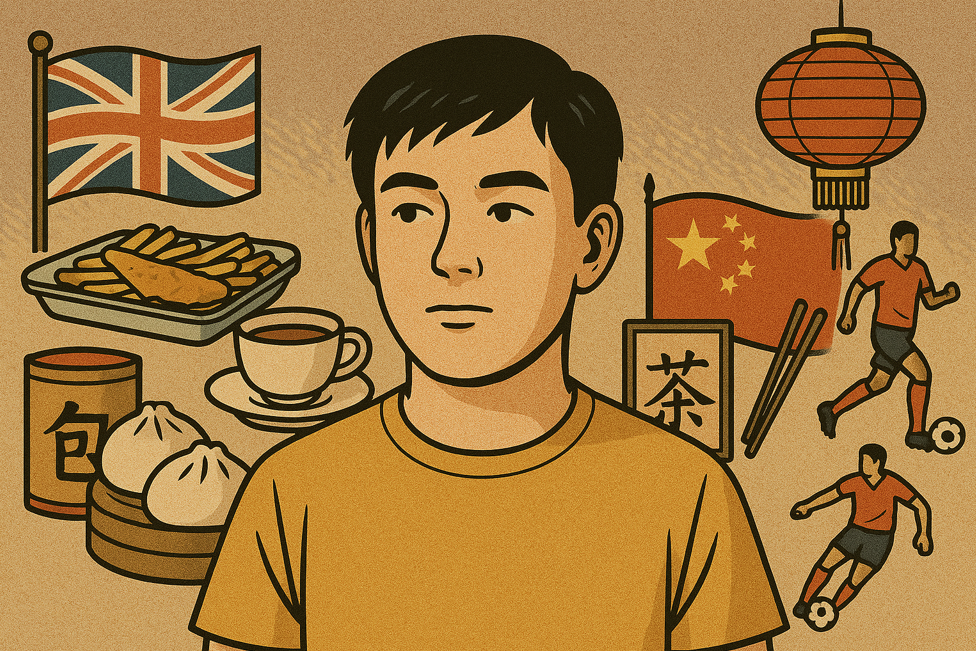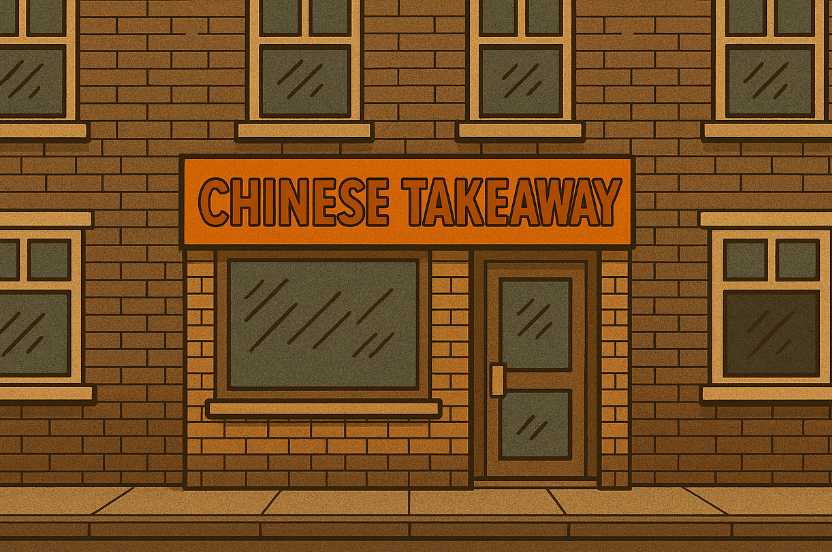
The Pressure to Succeed
Growing up in the UK as young British Chinese with immigrant parents, we are reminded that education and hard work are the keys to a better future. On the surface, this may seem like a familiar immigrant story: parents sacrifice, children achieve and families move upwards. Yet for those of us who grew up in this environment, the reality is far more complex. Success is not just encouraged; it is expected, often leaving little space to question whether the definition of success itself is fair, sustainable, or even desirable on our own terms. The pressure to succeed is not simply an individual struggle but a cultural inheritance.
The expectation of East Asians being naturally studious, disciplined, and high-achieving has become a cultural stereotype. While this stereotype can be seen as a compliment, associating our community with diligence and reliability, it also flattens our diverse experiences into a single narrative. It fails to acknowledge the immense pressures and struggles that often lie behind those polished exam results or professional titles. When outsiders assume success is automatic for East Asians, they overlook the psychological toll it can take, particularly on young people who must balance their own aspirations with the hopes and expectations of their parents.
The concern is not just about the unfair pressure, but also about the narrow definition of success. If academic achievement or financial prosperity remain the only acceptable measures of worth, other forms of fulfilment, such as creativity, emotional wellbeing, and community contribution, risk being undervalued or dismissed. For British Chinese individuals growing up in the diaspora, this creates a double burden: the need to live up to inherited expectations while also navigating life in a society that already perceives them through the lens of this stereotype. Understanding the roots of this pressure and why it persists is crucial if we are to create space for broader, healthier ways of defining and achieving success.
The Cultural Root of High Achievement
One of the most evident advantages of the East Asian emphasis on success is the financial and social stability it can bring across generations. Rooted in Confucian ideals, education since ancient China has been viewed as the surest path to upward social mobility, particularly for families with limited social or economic resources. For immigrant communities like the Chinese in the UK, this cultural inheritance often becomes a practical strategy: excelling academically and achieving professional status helps to counter discrimination, economic security, and marginalisation.
Research on British Chinese pupils shows how families strategically mobilise cultural and social capital to maintain high educational outcomes, often in the face of marginalisation. For example, official UK government data for 2022-2023 reveals that pupils of Chinese ethnicity had the highest average Attainment 8 score among all ethnic groups (65.5 out of 90), compared to the national average of 46.3. Further, 88.6% of Chinese pupils achieved at least a grade 4 or above in GCSE English and Maths—the strongest performance among all ethnic groups in that measure. These figures show that cultural emphasis on education has translated into clearly measurable academic success, enabling many British Chinese individuals to access stable employment, scholarships, and professional recognition.
Beyond material success, this high achieving mindset has frequently cultivated personal qualities such as resilience, perseverance, long-term planning, and discipline. For many British Chinese families, academic achievement is not merely an individual pursuit—it is deeply collective, seen as the outcome of parental sacrifice, community support and cultural continuity. These values often serve as both a source of pride and a buffer: they provide not just security in socio-economic terms, but also a framework of dignity and purpose in environments that may otherwise feel hostile or indifferent.
The Toll of Success
While the emphasis on cultural values can be a source of resilience, it can also become overly restrictive when success is narrowly defined. In many British Chinese and East Asian families, academic achievement, prestigious careers, and financial prosperity are often equated with success, leaving little room for alternative paths such as creative pursuits, community involvement, or personal fulfilment. This intense pressure can instill a sense of duty, but it also risks creating anxiety, guilt, and burnout among younger generations who struggle to live up to these lofty expectations.
Studies on Chinese immigrant families in the UK illustrate how extracurricular activities like music are often tolerated only when they support their academic achievement (Luo & Liu, 2024). Similarly, research into British-born Chinese youth highlights how young people often feel the weight of parental sacrifices and cultural expectations, leaving them caught between their family’s aspirations and their own evolving sense of identity (Wong, 2013).
Such sentiments can limit the freedom of young people to fully explore their interests and shape their identity in ways that prioritise external validation over self-expression and individual qualities. Over time, this can lead to intergenerational friction as children navigate the gap between parental aspirations and their own definitions of happiness and success. The result is a cultural paradox: what was once a strategy for resilience and upward mobility can become a source of psychological strain and alienation.
Conclusion
The pressure to succeed within East Asian and British Chinese communities cannot be understood simply as a matter of “hard work” or parental strictness. Its roots lie in a much deeper historical and cultural mindset, one shaped by Confucian ideals of moral cultivation, family duty, and education as the key route to mobility and dignity. This has resulted in generations of social progress, stability, and resilience in new and challenging environments. However, it comes with costs, including narrowing the definition of success, fostering intergenerational misunderstandings, and imposing a heavy psychological burden on individuals who feel trapped between cultural expectations and personal aspirations.
Speaking from personal experience, it can feel as if your worth is determined by grades, job titles, or income brackets – benchmarks that allow little possibility for other definitions of success. Many of us feel both grateful for our parents’ sacrifices and frustrated by the weight of expectations placed on us. It is not about rejecting such principles totally, but rather questioning whether they should be the only measure of a meaningful life. For parents, one step forward might be recognising and understanding that support often means providing encouragement instead of the restrictive style parenting.
Ultimately, we need to re-exam what success means to future generations. Something that allows us to grow into identities that honour the resilience of previous generations, while also embracing the freedoms of the present. Success, in this sense, is not only about climbing ladders but also about choosing which ladders are worth climbing. For young people, it might entail redefining success to encompass more than just academic performance: developing creativity, building on social skills and finding purpose beyond the next exam result. It’s a delicate balance, where the very values that once fostered strength and progress can become a burden on the younger generation when it is taken to the extreme. With empathy and understanding, we can work to create a more inclusive and supportive environment that allows for diverse paths to fulfilment and success.



